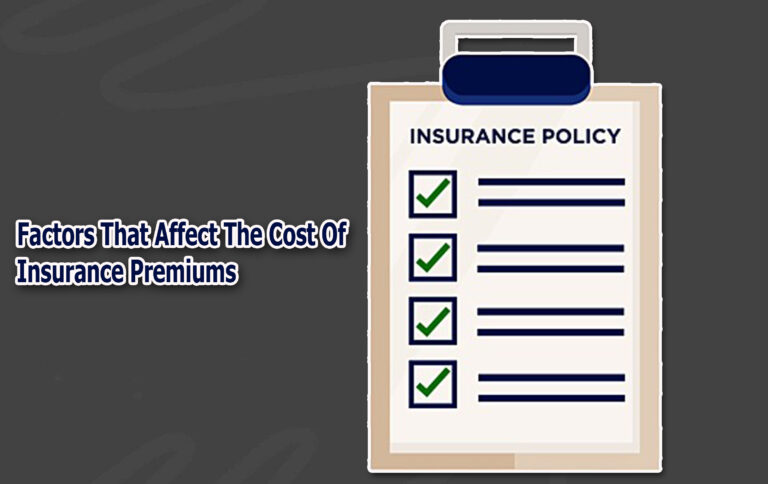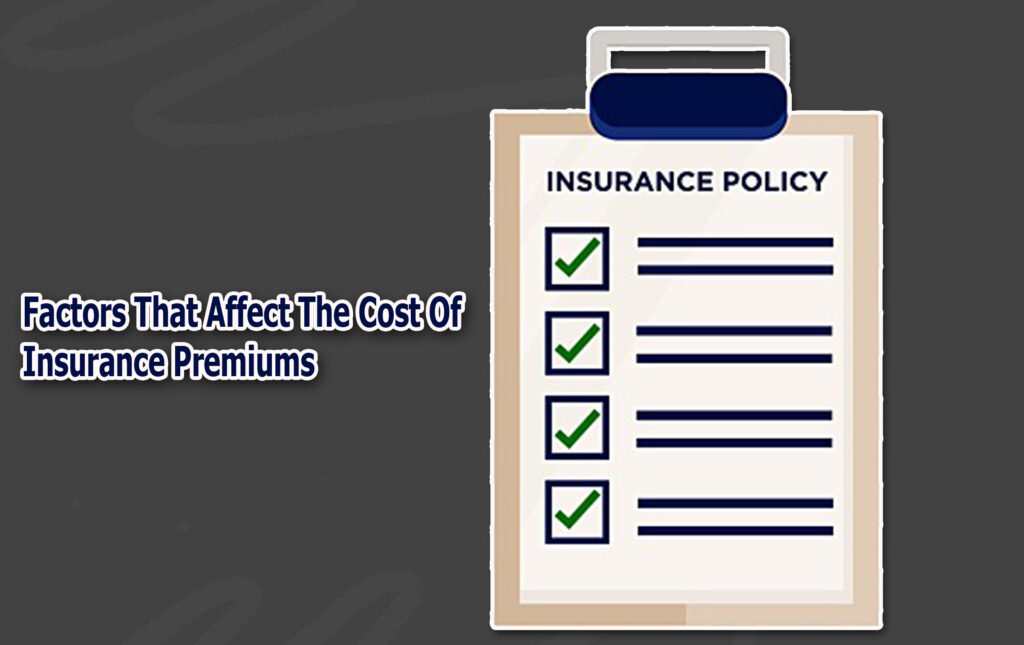
What are the factors that affect the cost of insurance premiums? Whether it involves auto, business, health, home, or life insurance, insurance premiums are regular payments that policyholders make to keep their insurance coverage active.

These payments are important to maintain their quotes and make sure the insurance providers fulfill their responsibilities when the policyholders file a claim.
However, one important criterion that policyholders need to know is that the amount paid to keep the quotes or policies active differ depending on different factors. This leads to the question: what are the factors that affect the cost of insurance premiums?
What Are Factors That Affect The Cost Of Insurance Premiums?
Many people are surprised to find that identical coverage plans can differ in price from one person to another. This is because insurance companies evaluate a wide range of variables when determining the cost of a premium.
These variables are used to assess the level of risk a policyholder presents and how likely they are to make a claim. Let’s take a look at the influencing factors.
Type Of Insurance Coverage
The kind of insurance you choose plays a major role in how much you pay. Insurance is generally tailored to meet specific needs depending on the asset, person, or risk being covered.
Furthermore, each type of insurance, whether health, life, car, home, or business, has its own pricing model and risk profile.
Here are how different coverage types can affect your premium:
- Basic vs. Comprehensive Plans: A basic health or car insurance plan covers only the essentials, while a comprehensive one has extra services like dental care or accident forgiveness.
- Policy Limits and Deductibles: A lower deductible means you get a higher premium, while a higher deductible can reduce the cost.
- Riders and Add-ons: Adding extras like maternity coverage to health insurance or theft protection to home insurance increases costs.
Health And Medical History
For health and life insurance, your medical background clearly becomes one of the most critical factors. Insurance companies will always evaluate your personal health, medical history, and even family medical history to gauge the potential risks they’re covering.
Here are some included considerations:
- Lifestyle Choices: Smokers or individuals who consume alcohol excessively may see higher premiums due to increased health risks.
- BMI and Fitness Level: Being overweight or inactive can signal health issues, leading to costlier insurance rates.
- Chronic Illnesses: Conditions like diabetes, heart disease, or asthma can greatly raise your premiums.
Credit Score And Financial History
Additionally, your credit score sometimes plays a role in determining your insurance premium, especially for auto and home insurance in some countries.
A poor credit score may suggest financial irresponsibility, which insurers may associate with increased likelihood of filing claims. Hence:
- Low credit score may result in higher premiums or denial of coverage.
- Missed or delayed payments can affect how insurers view your risk level.
- High credit score often results in discounts or better rates.
Age And Gender
Your age and gender are included factors that are highly considered, especially for health, life, and auto insurance policies. Moreover, insurance companies use statistical data to assess risk based on these demographics, which directly impacts premium costs. Some of the factors include:
- Younger individuals are typically seen as higher risk due to inexperience or less stable health history.
- The Health insurance of older adults may cost more as medical needs increase. However, life insurance premiums are significantly higher the older you are.
- In some regions, young male drivers are charged more for car insurance because they are statistically more likely to be involved in accidents.
Occupation And Lifestyle
The job you do for a living and how you spend your time outside of work also influence your insurance premiums. Certain jobs and hobbies present higher risk levels than others.
Examples include:
- High-Risk Jobs: Construction workers, miners, or pilots often pay more for life and health insurance due to the nature of their work.
- Workplace Environment: Exposure to hazardous chemicals or physical stress at work impacts health coverage costs.
- Recreational Activities: Activities like skydiving, scuba diving, or racing can also lead to higher premiums.
Location And Local Risk Factors
Another influencing factor that affects your premium rates include the place you live, especially for auto and homeowners insurance. Typically, urban areas may have higher crime rates or accident occurrences, while some regions are prone to natural disasters.
Frequently Asked Questions
Why Do Insurance Premiums Vary Between Companies?
Technically, each insurance company uses its own risk assessment model, underwriting process, and pricing strategy. This simply means that two companies could quote different premiums for the same individual and coverage level.
Would It Be Easy To Lower My Insurance Premium?
Yes, you can lower your premiums by maintaining a healthy lifestyle, and increasing your deductible. Other recommendable actions could include improving your credit score, bundling policies, and avoiding unnecessary add-ons.
However, it’s not as easy as it sounds and it would take some work to get it right.
Does Making A Claim Increase My Premium?
In many cases, yes it can. Filing frequent claims may lead insurers to see you as a higher risk, which could result in increased premiums upon policy renewal.